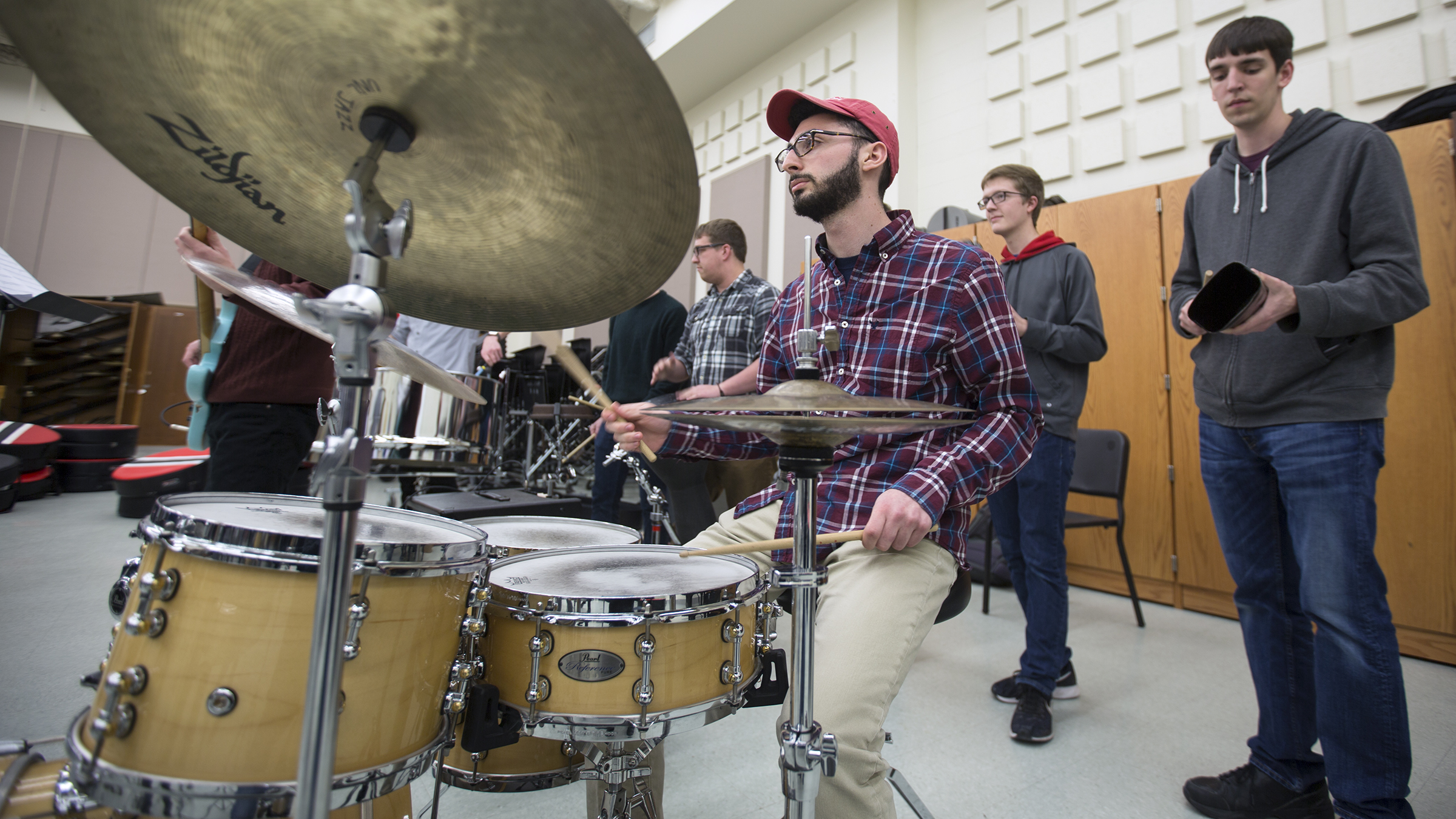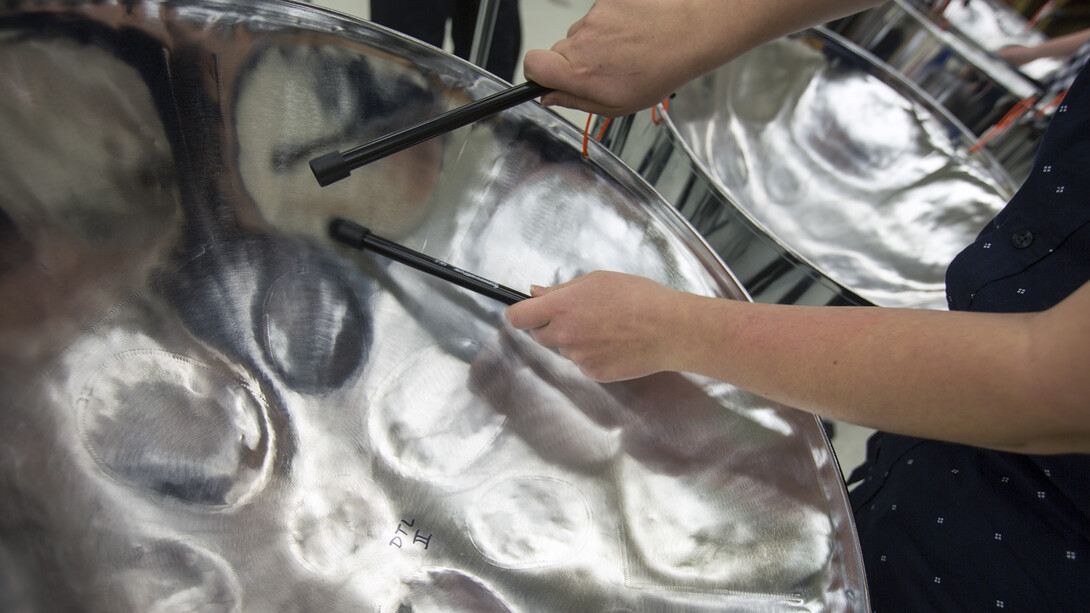
Warm rhythms of the Caribbean are aligning with robin song and daffodil blooms to sweep away remnants of winter chill at the University of Nebraska–Lincoln.
Launched in January by the Glenn Korff School of Music, Nebraska Steel — the university’s first student ensemble dedicated to playing steel drum music — debuts April 24. The ensemble, led by Dave Hall, assistant professor of percussion, includes 22 Huskers grooving on four styles of pans and other percussion instruments to drive the distinctive, laid-back beat of steel drum music.
“Playing is so much fun,” said Louis Raymond-Kolker, a first-year master’s student from Austin, Texas. “Part of it is the reaction you get when you play. There’s stunned silence at first, but then the music takes hold and people want to know everything about the instrument and how to play it.”
A pan player since junior high school, Raymond-Kolker is pursuing a master’s degree in percussion performance at Nebraska because of a previous performance led by Hall.
“When I was in high school, Dr. Hall wrote a piece that we performed at a regional conference in Chicago,” Raymond-Kolker said. “The composition was unique and showed me that Dr. Hall was willing to try new things with the instrument. I definitely had him in the back of my mind when I started looking at graduate programs.”
Hall has played steel drum for a number of years. He owns his own set of pans and has played professional gigs since graduate school.
“I’ve wanted to share the steel drum experience with students for a number of years,” Hall said. “It’s something that is popular at a number of universities and schools, but not as much in Nebraska or the Midwest.
“We’re excited to be adding this to the Nebraska Percussion Ensemble.”
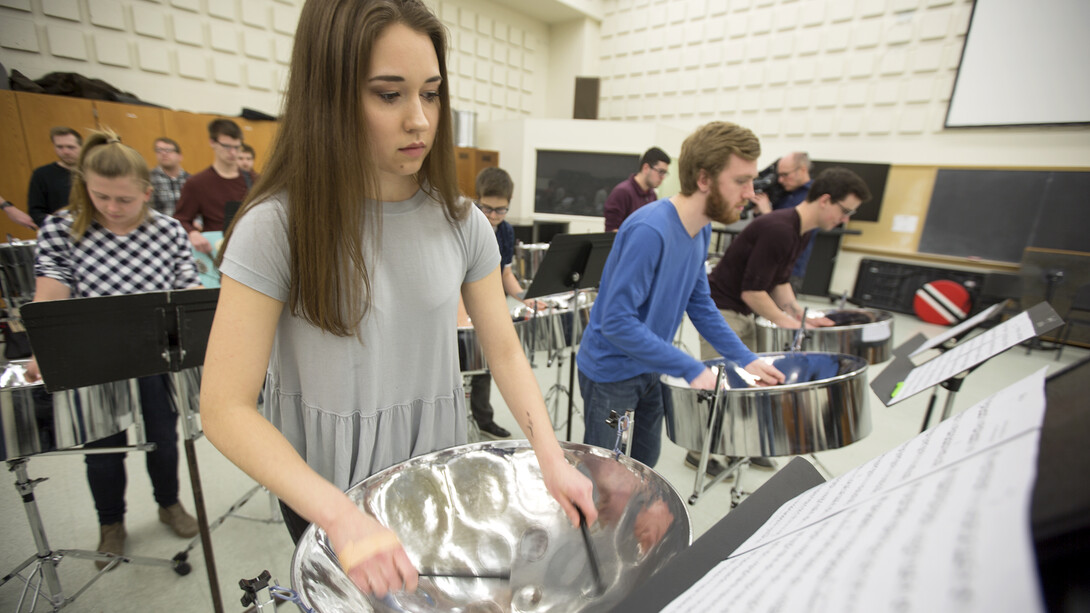
Funding for the instruments was provided through an endowment provided by Glenn Korff, a Hebron, Nebraska, native and 1965 University of Nebraska graduate.
Nebraska Steel features four types of pans which, when combined, work like voices in a choir. Soprano sound is provided by lead and tenor pans, which are single instruments that play in the front of the ensemble. The alto section resides in double seconds, two-pan setups that are centrally located. Tenor is provided by cellos (also known as guitars), three-pan instruments located in the back of the group.
The “engine room” rounds out the ensemble, providing a driving percussion beat through instruments like shakers, cowbell, trap set, various drums, a steel brake drum and bass guitar.
“The style of the music, such as Calypso and Soca, is incredibly infectious and makes you want to get up and dance,” Hall said. “It really sets a magical mood. When groups perform, the musicians often have big smiles on their faces and they’ll be dancing along as they play the music.”
Nebraska Steel’s first performance, which is 7:30 p.m. April 24 in Kimball Recital Hall, will also include Pangea, a steel drum band that has been offered by Lincoln Public Schools since 2003. Both ensembles will play individual sets before coming together to close the recital.
Tickets, available at the door, are $5 general admission and $3 for students and senior citizens.
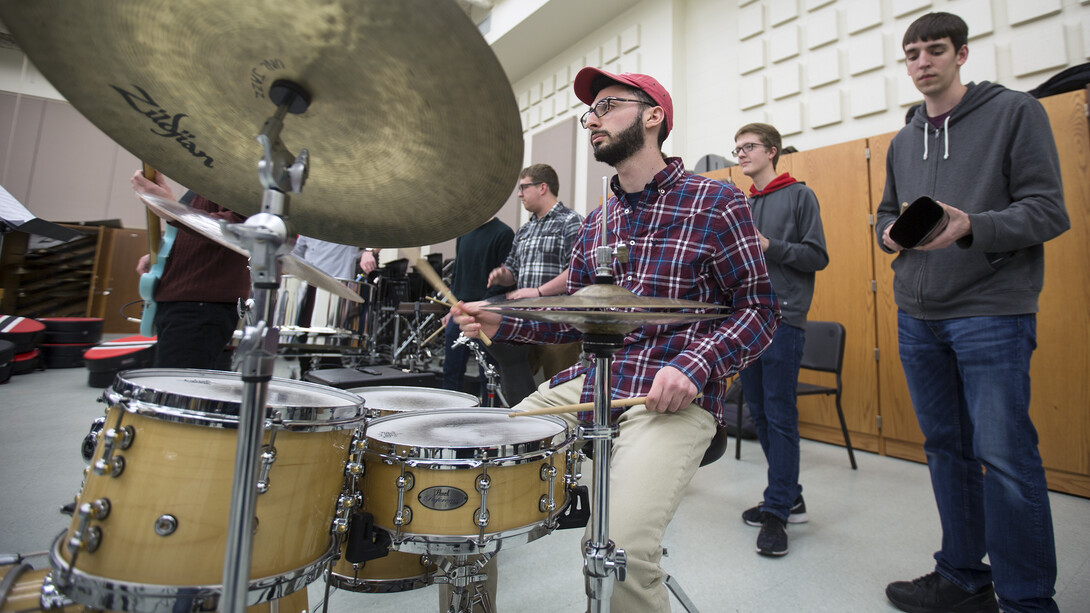
Jonah Payne, a freshman music education major and Lincoln Southwest graduate, will be the first Husker to play in both Pangea and Nebraska Steel.
“I’m really excited that I get to continue playing pan and be a part of the beginning of Nebraska Steel,” Payne said. “Long term, my goal is to introduce steel drum into my own classroom and, if it doesn’t already exist, start a band in whatever school I end up teaching in.”
Along with expanding course options on campus, Hall said Nebraska Steel was founded to further cultural understanding.
“Any time you play music from another culture, visit another place, eat food from another country or read the literature of another culture, you expand your horizons, understand people better and think more globally,” Hall said. “Nebraska Steel is a way to help our students see beyond our walls, think about music from other cultures and become better citizens of the world.”
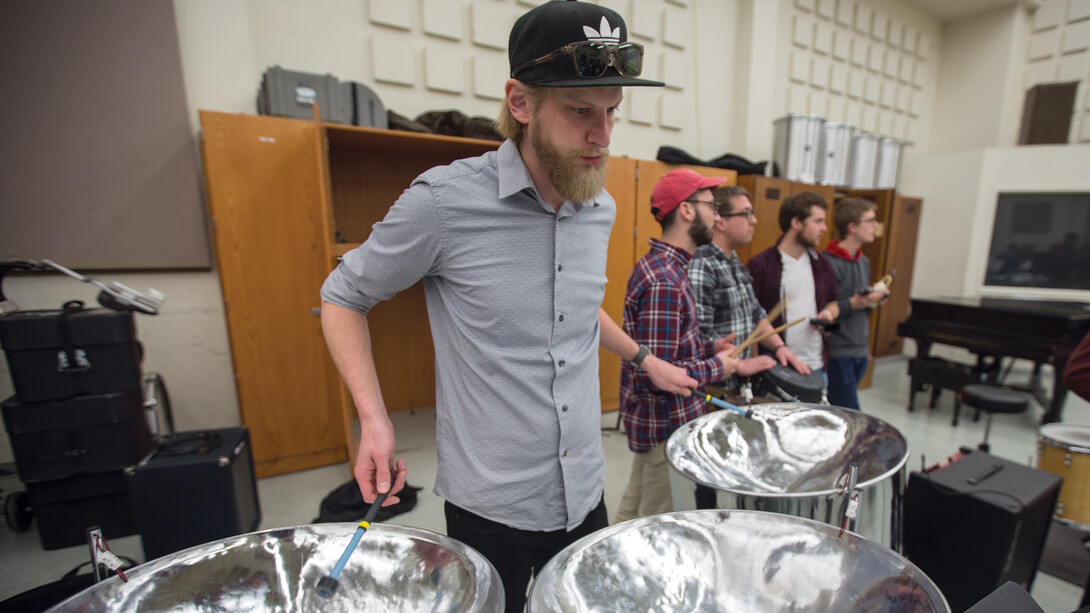
Share
Tags
High Resolution Photos
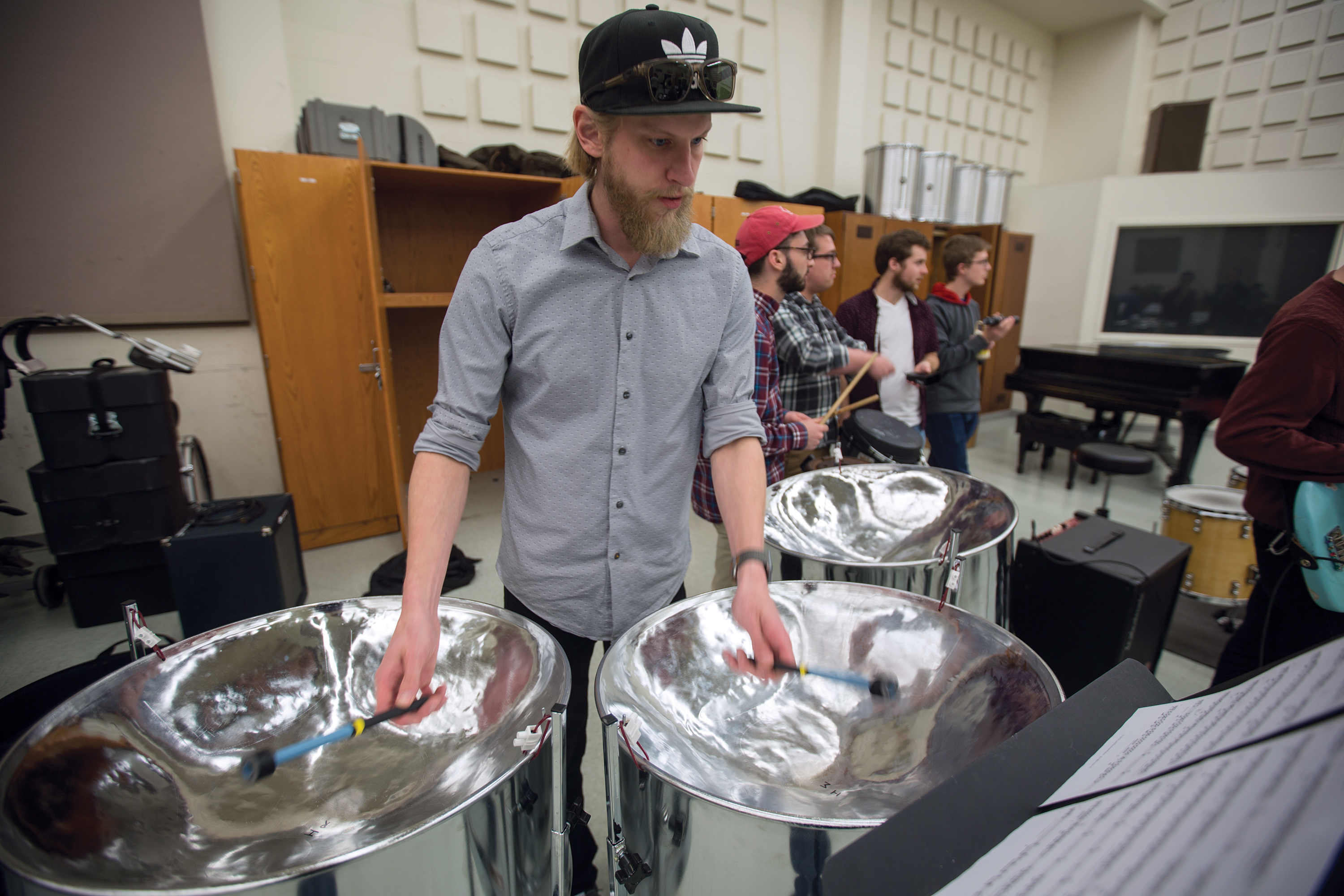
HIGH RESOLUTION PHOTOS
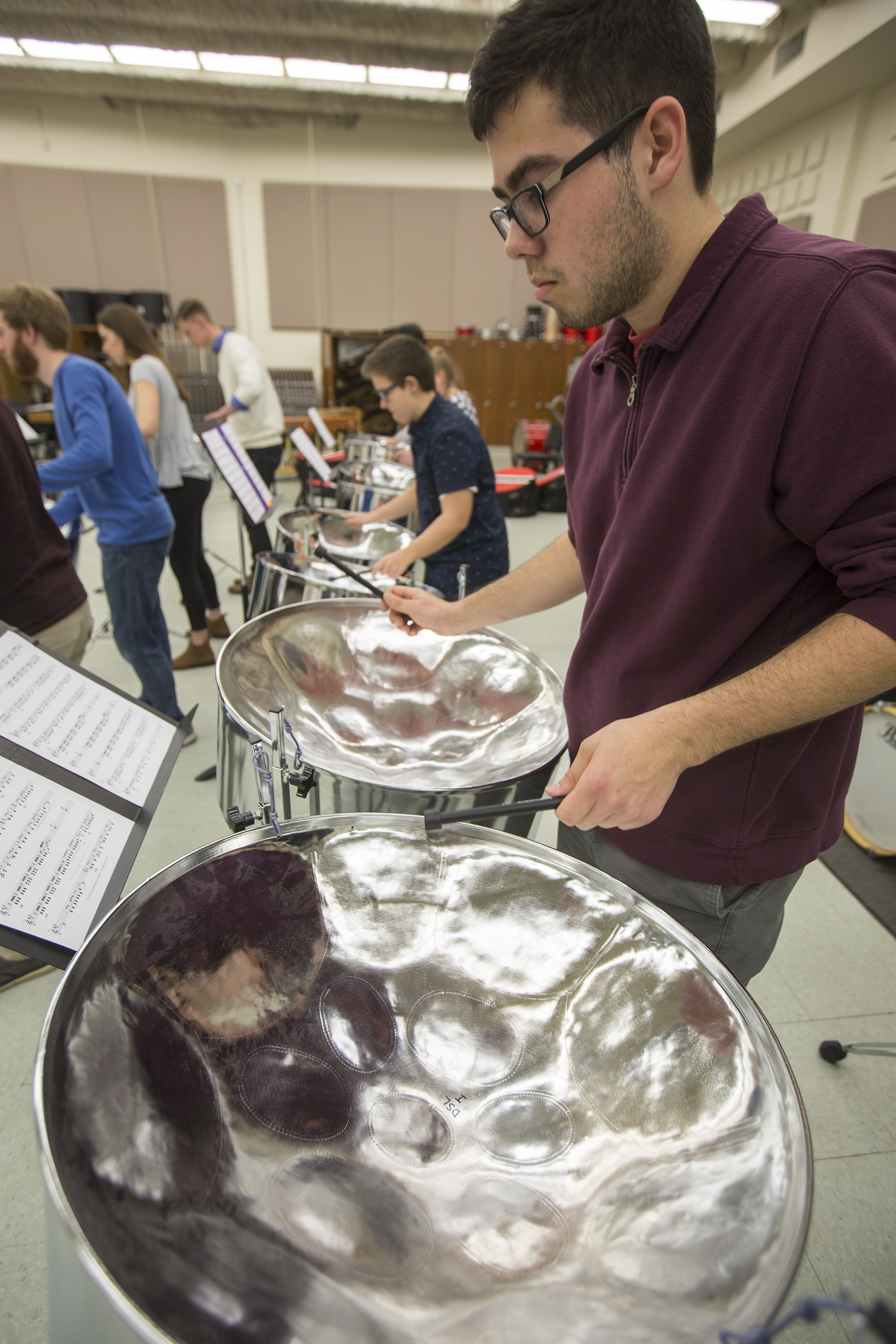
HIGH RESOLUTION PHOTOS
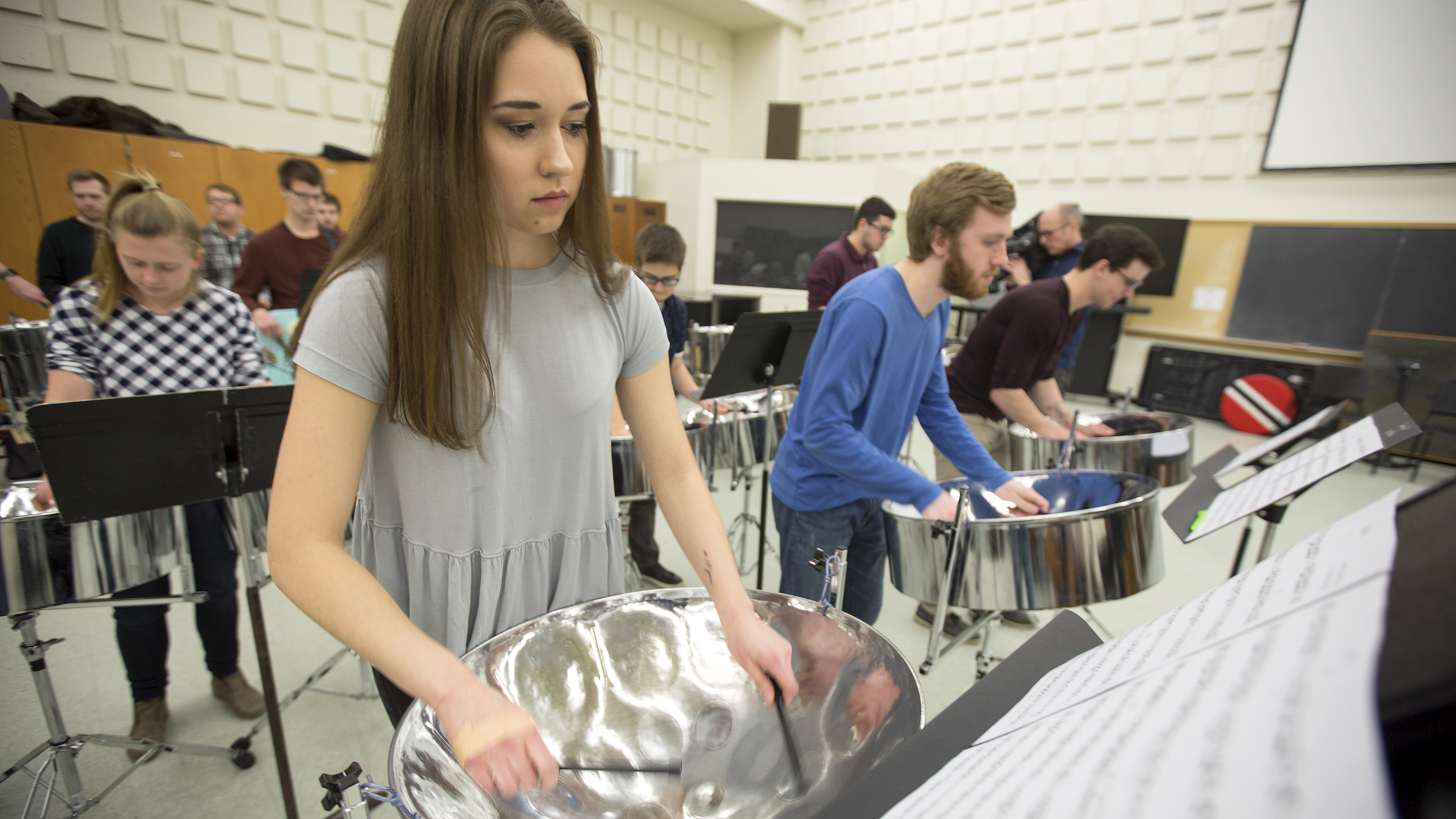
HIGH RESOLUTION PHOTOS
